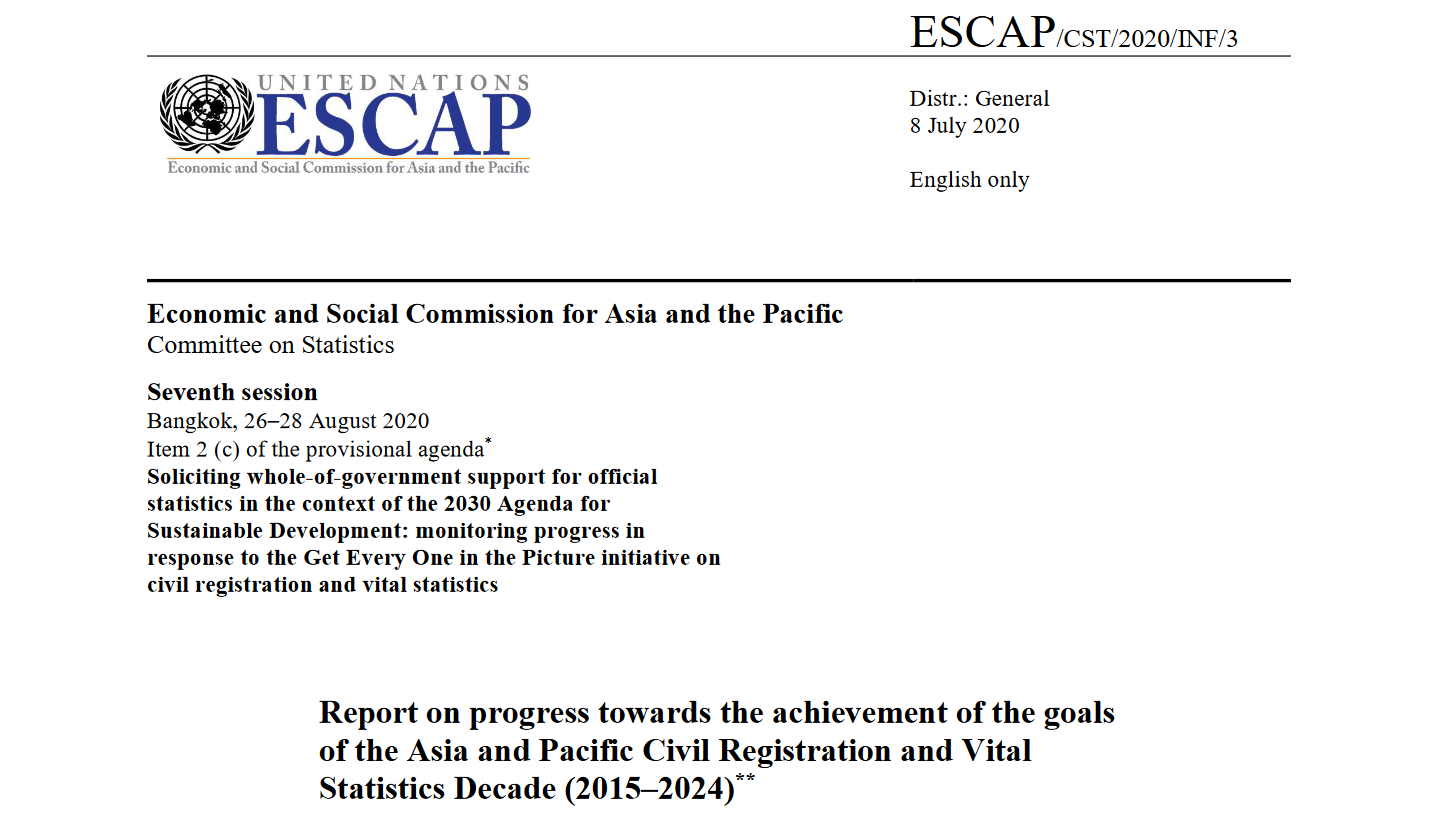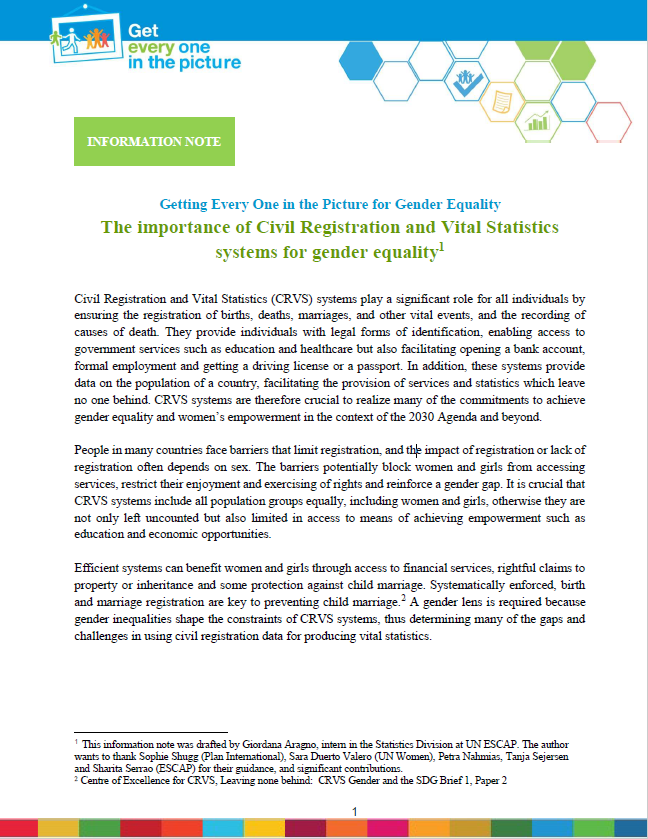WHO to support seven countries in CRVS systems' strengthening
(Newsletter: CRVS Insight August 2020)
|
The CRVS community in Asia and the Pacific has reflected on where it stands at the midpoint of the CRVS Decade (2015-2024) during the Second Ministerial Conference. Following this celebration of progress, many of our partners and member countries are leading actions to fill the remaining gaps. To learn more about CRVS in Asia and the Pacific, please subscribe to our newsletter, which offers a monthly panorama of CRVS actions throughout the region Previous editions can be found here. |
(Newsletter: CRVS Insight August 2020)
(Newsletter: CRVS Insight August 2020)
CRVS systems play a significant role for all individuals by ensuring the registration of births, deaths, marriages, and other vital events, and the recording of causes of death. They provide individuals with legal forms of identification, enabling access to government services such as education and healthcare but also facilitating opening a bank account, formal employment and getting a driving license or a passport.
(Newsletter: CRVS Insight August 2020)
To inform the discussions around CRVS at the seventh session of the ESCAP Committee on Statistics, a report was published, with information pulled from the questionnaires sent by countries as part of the midterm assessment of the CRVS Decade for Action. You can find it here.
To inform the discussions around CRVS at the seventh session of the ESCAP Committee on Statistics, a report was published, with information pulled from the questionnaires sent by countries as part of the midterm assessment of the CRVS Decade for Action. It aims at giving a preliminary picture of the main trends in the Asia-Pacific countries since the inception of the Decade, especially regarding the implementation steps of the Regional Action Framework and the birth and death registration level.

Civil Registration and Vital Statistics (CRVS) systems play a significant role for all individuals by ensuring the registration of births, deaths, marriages, and other vital events, and the recording of causes of death. They provide individuals with legal forms of identification, enabling access to government services such as education and healthcare but also facilitating opening a bank account, formal employment and getting a driving license or a passport.

(Newsletter: CRVS Insight July 2020)
The Second Ministerial Conference on CRVS in Asia and the Pacific was postponed due to the ongoing issues surrounding the COVID-19 pandemic. We are happy to announce that the Second Conference is now scheduled for 16 - 19 November 2021.
(Newsletter: CRVS Insight July 2020)
The COVID-19 pandemic brought the need for reliable and timely mortality statistics into sharp focus. Knowing how many people are dying and where they are is essential to tracking the virus’ spread and determining its impact. And while this sounds simple, COVID-19 also exposed deep and pervasive gaps in death registration systems in Asia and the Pacific, especially in low-income countries.